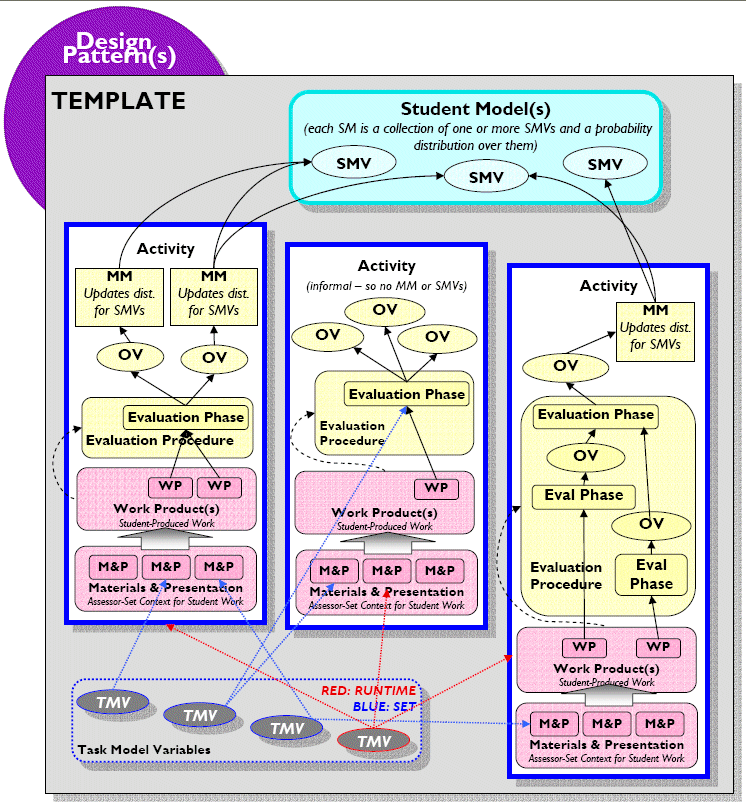 |
About PADI
PADI aims to provide a practical, theory-based approach to developing
quality assessments of science inquiry by combining developments
in cognitive psychology and research on science inquiry with
advances in measurement theory and technology. The center of
attention is a rigorous design framework for assessing inquiry
skills in science — highlighted in various standards but
difficult to assess. The long range goals of PADI are as follows:
- Articulate a conceptual framework
for designing, delivering, and scoring complex assessment
tasks that can be used to assess inquiry skills in science;
- Provide support in the form of
resources and task schemas or templates for others to develop
tasks in the same conceptual framework;
- Explicate the requirements of
delivery systems that would be required to present such
tasks and evaluate performances; and
- Provide a digital library of working
exemplars of assessment tasks and accompanying scoring systems
developed within the PADI conceptual framework.
The PADI approach to standards-based assessment moves from
statements of standards, through statements of the claims
about the capabilities of students’ the standards imply,
to the kinds of evidence one would need to justify those claims.
These steps require working from the perspectives of not only
researchers and experts in the content area, but experts in
teaching and learning in that area. In this way, central science
concepts and how students come to know them can be taken into
account. Moreover, we incorporate the insights of master teachers
into the nature of the understanding they want their students
to achieve, and how they know it when they see it.
PADI Object Model
PADI defines a system of interrelated
objects which contain assessment information. Some of these
relations are represented below within diagrams.
Click on the small diagrams to see larger images in a separate
window.
| Relations between main objects |
An example of a template with three activities |
|
|
|
|
 |


